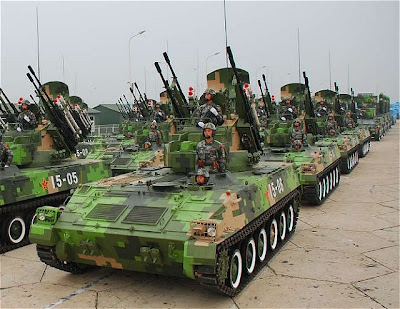
Russia's security service has revealed that it arrested a suspected Chinese spy who posed as a translator while seeking sensitive information on an anti-aircraft system.
The man, identified as Tun Sheniyun, was arrested on 28 October last year, the federal security service (FSB) said in a statement cited by RIA-Novosti news agency.
It was unclear why the FSB disclosed the arrest on Wednesday, less than one week before the prime
minister, Vladimir Putin, travels to China on an official visit.The alleged spy was acting "under the guise of a translator of official delegations", the statement said.
He had "attempted to obtain technological and maintenance documents on the S-300 anti-aircraft missile system from Russian citizens for money", it added. That information is a state secret, it said.
Prosecutors sent the case to court on Tuesday, the statement said. Tun faces charges of attempted espionage.
Last year, Russia delivered 15 S-300 systems to China, a popular Soviet-era arms export, as part of a deal signed several years earlier. Yet Beijing has recently turned to more modern systems.
Putin's two-day visit to China next Tuesday will be his first foreign trip since he announced his planned return to the Russian presidency next year.
Ruslan Pukhov, director of the centre for analysis of strategies and technologies, a defence thinktank in Moscow, said: "They [the Chinese] are trying to copy this system illegally. They've already copied a whole series of our weapons.
"They're trying to clone the S-300, to serve their interests and also to export. As I understand it, it's not all working out. They probably wanted extra documentation to better deal with this task of reverse engineering."
A report by the Stockholm International Peace Research Institute (Sipri) released this week warned that the Sino-Russian relationship was growing increasingly uneasy given China's international rise.
"In the coming years, while relations will remain close at the diplomatic level, the two cornerstones of the partnership over the past two decades – military and energy co-operation – are crumbling," the thinktank wrote. "As a result, Russia's significance to China will continue to diminish."
It said that while more than 90% of China's major conventional weapons imports came from Russia between 1991 and 2010, the volume of imports had declined dramatically in the last five years.

No comments:
Post a Comment